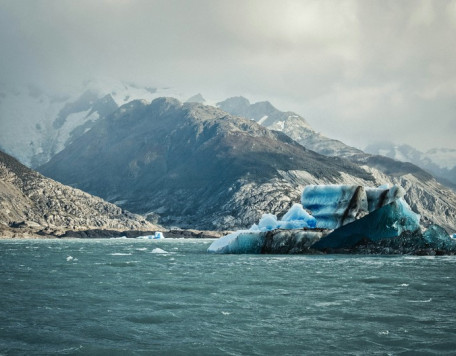© Pint of Science, 2025. All rights reserved.
Covering 71% of the earth's surface, water is the key component in all life on the planet. This evening will include 3 talks from experts within the fields of water related science; covering the topics of coral reef environments, the effect of sea level rising on the coast and fish that could save the world! Get involved between talks as we will provide hands-on activities including 3D printed corals.
Corals are Great Chemists
Dr Gavin Foster
(Professor of Isotope Geochemistry )
Coral reefs are the largest bioconstructions on the planet. They underpin ocean biodiversity, protect coastlines from flooding and support the livelihoods of millions of people in diverse communities around the world relying on fishing and tourism. Most of these ecosystem services arise from the 3D skeletons of the stony corals. These colonial organisms use calcium and carbon naturally present in seawater to make the CaCO3 mineral aragonite. To do this they act as chemists and alter the chemical composition of the seawater to favour the formation of this mineral. The stony corals, and the reefs they construct, are under threat from ocean warming and acidification occurring from the actions of humanity. What the future holds for these organisms depends crucial on how good they are at manipulating their environment to continue to grow their skeletons as the climate changes around them. In this talk I will summarise what is know about the processes involved in coral skeleton formation, how we know this, and how we can use this information to better protect this unique and critically endangered marine ecosystem.
The Rising tide - sea level rise and its impact on our coast
Professor Ivan Haigh
(Professor in sea level and coastal change )
Sea level rise is the most certain and the most costliest consequence of climate change. Over the last 150 years sea levels have risen by around 25cm but are projected to increase by up to 1m or more this coming century with enormous consequences for communities in low-lying coastal regions. In this talk, Ivan will describe the latest science on sea-level rise. He will discuss how rates of sea-level rise have changed over the last 150 years, and highlight how rates of rise are currently accelerating globally. He will then describe what has caused sea-levels to rise and accelerate in recent decades, driven by thermal expansion, glacier and ice sheet mass loss and terrestrial water storage. He will then discuss the impact of sea level rise for small island states, densely populated deltas, coastal cities and world heritage sites.
Why fish(eries scientists) will save the world!
Martina Stiasny
(Lecturer in Marine Biology, SOES)
Do you ever think about fish beyond your fish and chips? But maybe you worry about the future in light of global change? Let me tell you how the two are related, and why fisheries science has all the answers!!!
Map data © OpenStreetMap contributors.
Other Stein Garten events
2025-05-19
Microscopic World
Stein Garten
46-47 High Street, Southampton, SO14 2NS, United Kingdom
2025-05-21
Global Scale
Stein Garten
46-47 High Street, Southampton, SO14 2NS, United Kingdom



